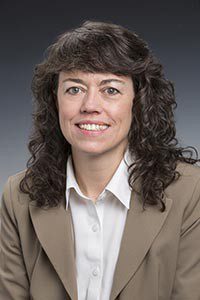
Prince William Sound is home to one of the best and most effective oil spill prevention and response systems in the world.
This system was developed over the past 30 years through a partnership between the oil industry, federal and state regulators, legislators, and citizen stakeholders. This system is possible because Alaskans were dedicated to working together to ensure a spill like the Exxon Valdez never happens again.
Unfortunately, we have also seen a steady, on-going, and alarming deterioration of federal and state oil spill prevention, response, oversight, and enforcement capabilities in Prince William Sound.
A variety of factors contributed to this situation: state and federal regulation and enforcement rollbacks, budget and staff reductions at oversight agencies, COVID-19, the low price of oil, reduced oil consumption, and lower throughput in the Trans Alaska Pipeline System (TAPS).
Collectively, these issues could substantially increase the risk of an oil spill in Alaska.
“Burdensome” state regulations
This winter, the Alaska Department of Environmental Conservation solicited input from stakeholders, the public, and industry on its laws and regulations governing oil spill prevention and response. Reportedly, this stemmed from industry comments that such regulations are too burdensome. The Council submitted extensive comments and put together resources to support other members of the public who wished to give informed input.
The department also announced they would largely suspend oversight and enforcement activities during the current public health emergency.
In addition, funding for Alaska’s Division of Spill Prevention and Response, as well as to respond to an oil spill, is currently unsustainable.
Sale of BP’s Alaska Assets
In August, BP announced a plan to sell its Alaska assets to Hilcorp and their wholly owned subsidiary Harvest Alaska LLC. This sale would transfer the largest percentage of ownership of Alyeska to Hilcorp/Harvest, a company that according to state agencies has a track record of reducing costs. This could be very problematic if those reductions lead to further diminishment of safety, prevention, and response readiness.
Reducing budgets increases risk
Perhaps the most critical issue is the recent slump in oil prices. The low global demand for oil and other pandemic-related impacts, combined with the declining trend in TAPS throughput, are all added stressors to the industry’s budget.
As a result, Alyeska has tightened its belt and reduced staff in recent years. This could mean reduced accountability and supervision, reduced maintenance of aging infrastructure, reduced training, and increased workloads. These and numerous other factors mean elevated risk and increased chances of an accident.
A cautionary tale
In 1990, the U.S. Congress specifically identified complacency as a key factor in the Exxon Valdez oil spill. Thirty years later, while the entire world is distracted with COVID-19 and the resulting economic slump, the system is again threatened by complacency, compounded further by budgetary constraints and efforts to reduce costs.
The Council and our mission are more important than ever. Our vigilance is needed to prevent backsliding that could cause major oil spill. Such a disaster would be devastating for Alaskans, for our livelihoods, for fish and wildlife, and for the marine and terrestrial environment.
The Council hires expert contractors to ensure that sound technical advice is provided to regulators and industry in order to protect Prince William Sound and its downstream communities. We raise these concerns so that sensible and effective actions can be taken. Those with the most to lose from oil pollution must have a voice in the decisions that put their livelihoods and communities at risk. Through perseverance, hard work, and strengthening of partnerships between citizens, industry, and federal and state regulators, the systems put in place to prevent another major oil spill can be maintained and improved upon.